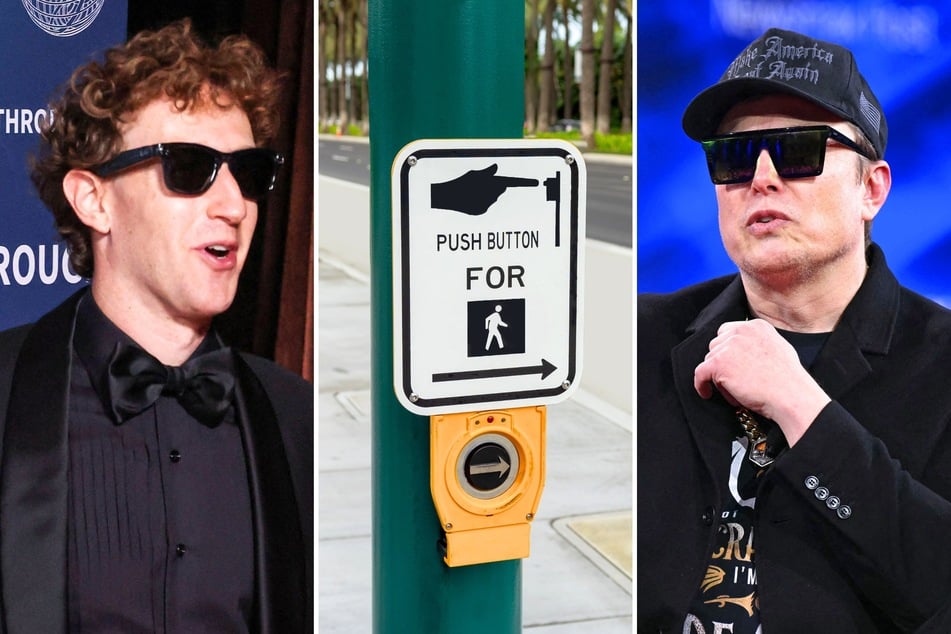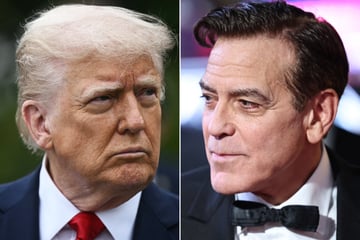Hackers replace crosswalk audio with AI messages from Musk and Zuckerberg
Silicon Valley, California - Law enforcement in multiple California cities is investigating after hackers apparently replaced the audio of local crosswalks with sound clips of Elon Musk and Mark Zuckerberg.

Over the weekend, social media users shared videos of themselves pressing crosswalk buttons in California, but instead of the "Walk" or "Wait" that is usually repeated by a robotic voice, pedestrians were met with AI-generated messages from either of the tech moguls.
"Hi, this is Mark Zuckerberg, but real ones call me the Zuck," one crosswalk said, imitating the Meta and Facebook CEO.
"You know, it's normal to feel uncomfortable or even violated, as we forcefully insert AI into every facet of your conscious experience, and I just want to assure you, you don't need to worry, because there's absolutely nothing you can do to stop it," the voice added. "Anyway, see ya."
Some were met with a message from a fake Musk, who bragged about being the richest man in the world.
"They say money can't buy happiness. I guess that's true. God knows, I've tried," the voice states.
"But it can buy a cyber truck, and that's pretty sick, right? F**k, I'm so loaded."
In another Musk message, the voice told pedestrians, "You don't know the level of depravity I would stoop to just for a crumb of approval... I mean, let's be real, it's not like I had any moral convictions to begin with."
Who is behind the mysterious crosswalk stunt?
The bizarre prank comes as both Musk and Zuckerberg have face heightened criticism in recent months for becoming donors, advocates, and allies to President Donald Trump.
According to The Independent, hacks have been reported in Redwood City, Menlo Park, Palo Alto, and the San Francisco Bay Area.
By Monday, all the crosswalks had been restored to the traditional audio, but It remains a mystery who is behind the prank, or how – and why – it was even pulled off in the first place.
Cover photo: Collage: IMAGO / ABACAPRESS, Pond5 Images, & SAUL LOEB / AFP
